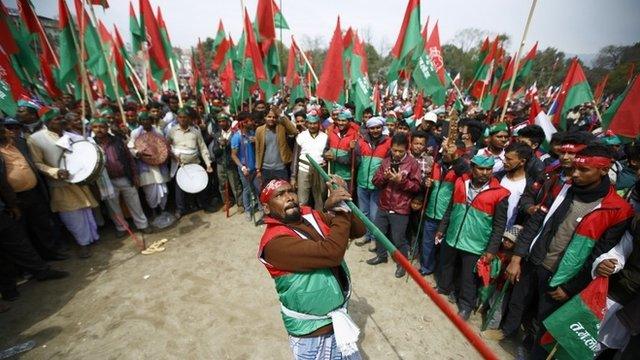Nepal constitution: New border protests block supplies from India
- Published
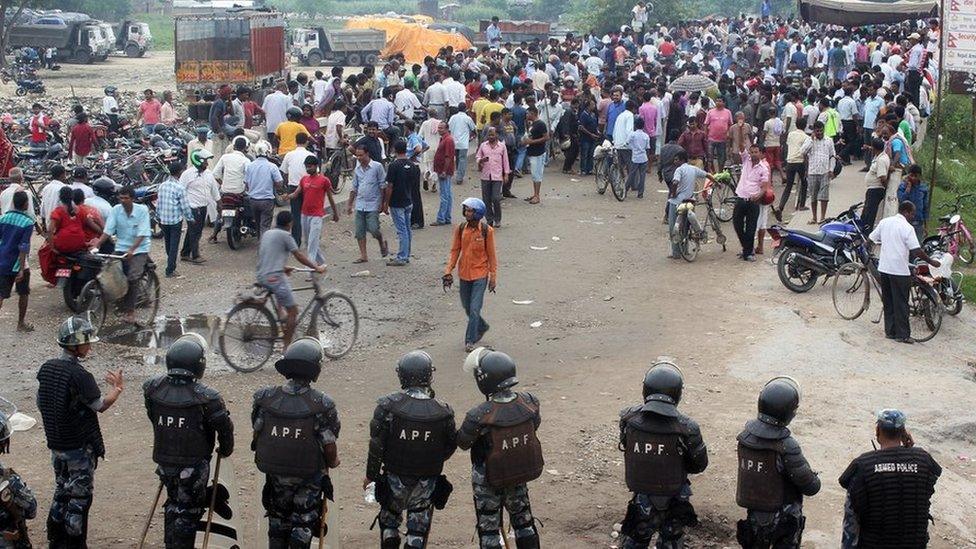
Demonstrators have blocked two of the main border crossings from India, shutting off vital supply lines
Fresh protests have broken out in parts of southern Nepal over the country's new constitution, adopted on Sunday.
Demonstrators have blocked two of the main border crossings from India, shutting off vital supply lines.
The protesters, who belong to ethnic groups from the southern lowlands, say the new constitution marginalises them.
In Kathmandu, Prime Minister Sushil Koirala has been meeting the leaders of Nepal's three main political parties to try to find a solution to the crisis.
At one southern town, Birgunj, hundreds of riot police have used tear gas to try to break up demonstrations.
The BBC's Sanjoy Majumder in Birgunj says the protesters are effectively shutting off the country's main supply line.
With several hundred trucks stuck at the frontier, supplies including sugar, salt and cooking gas cylinders are being affected.
Nepal is heavily dependent on supplies from neighbouring India.
BBC Nepali reporters in Kathmandu say long queues are forming at petrol stations as residents stockpile fuel in anticipation of shortages.
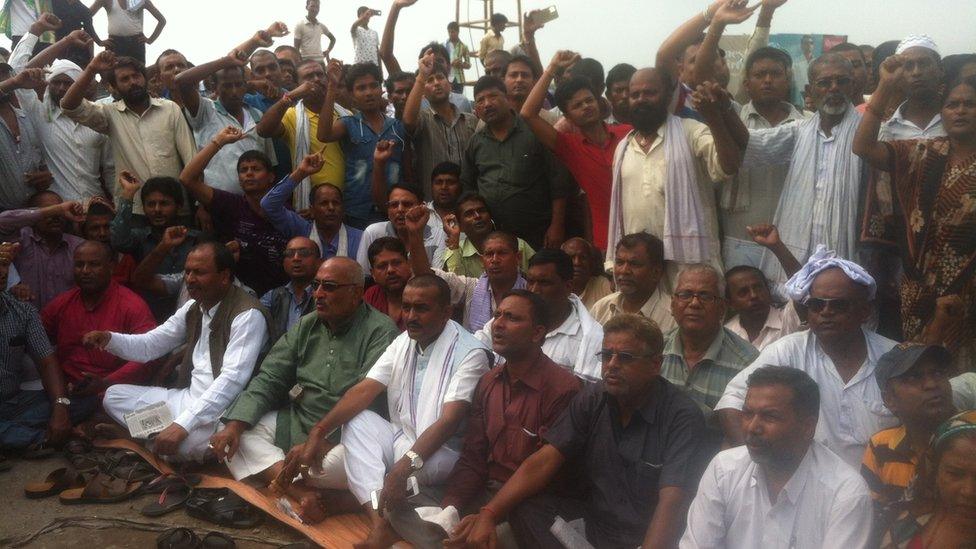
The protesters in Birgunj are effectively shutting off the country's main supply line.
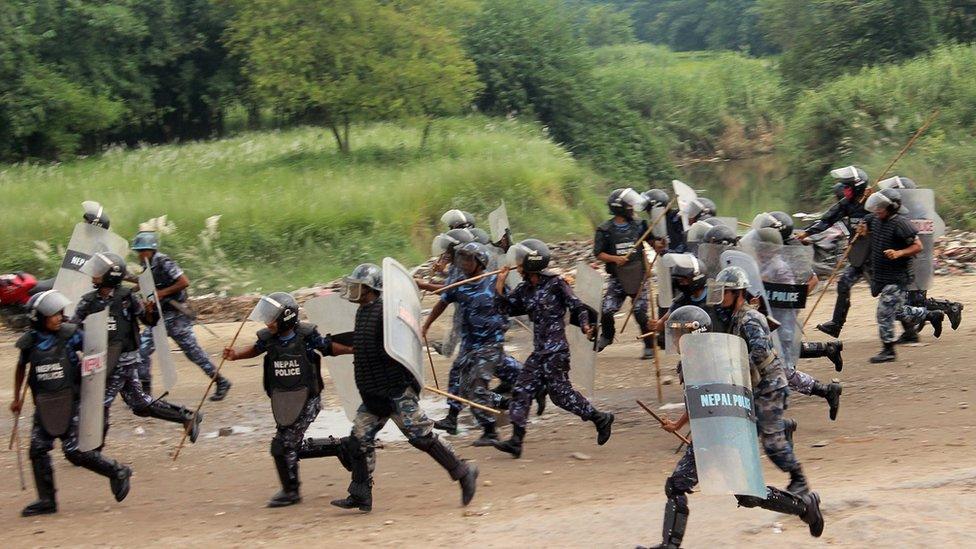
Nepalese police in Birgunj run for cover, chased by protesters. Violence over the new constitution has killed at least 45 people in recent weeks
Nepal's new constitution defines the majority Hindu nation as a secular republic divided into seven federal provinces.
But ethnic groups in southern Nepal want more territory and rights for ethnic federal states.
A senior leader of the Madhesi ethnic group in southern Nepal, Laxman Lal Karna, said earlier this week that the new constitution failed to address many of the issues and that protests would continue.
The violence in recent weeks has killed at least 45 people.
Nepal's handling of the crisis has drawn strong criticism from neighbouring India, which fears violence could spill onto its territory, where large numbers of Nepalese work.
- Published23 September 2015
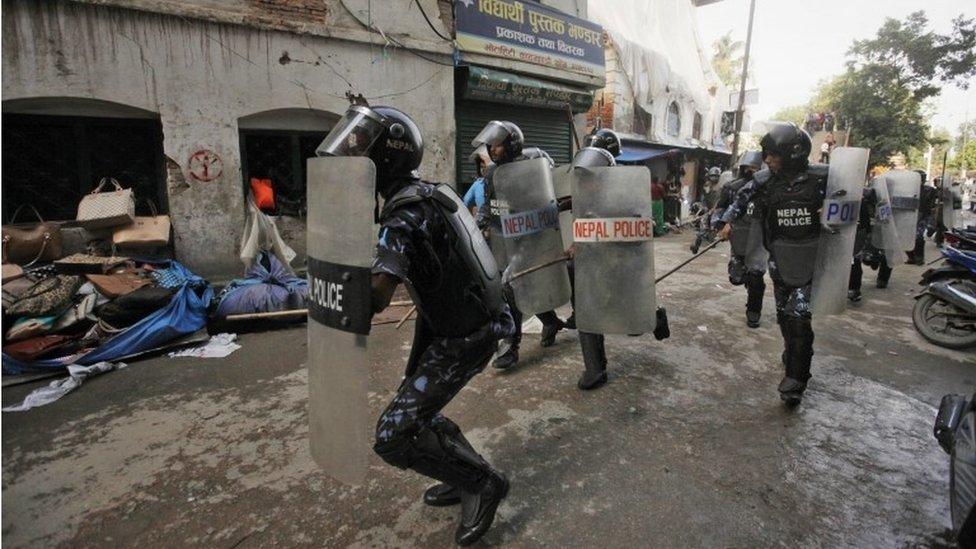
- Published22 September 2015
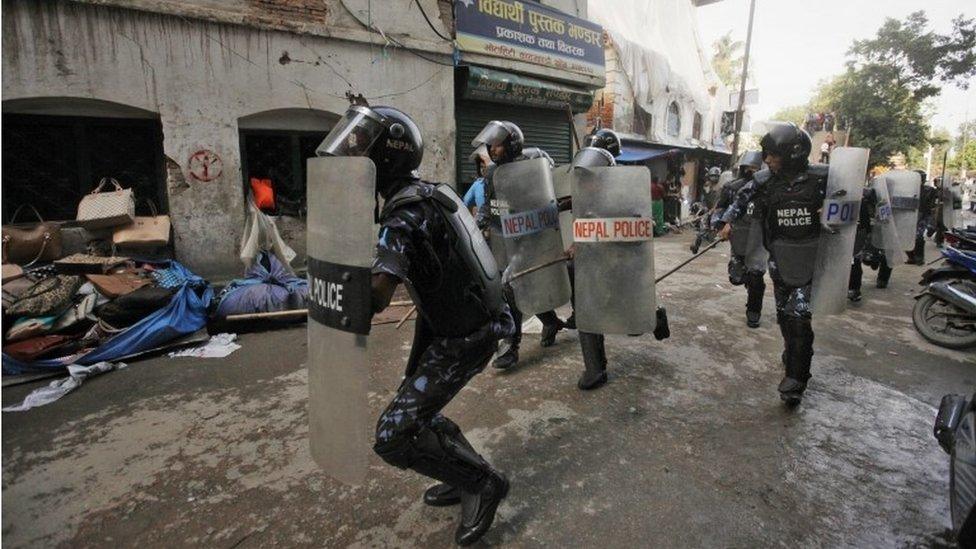
- Published22 September 2015
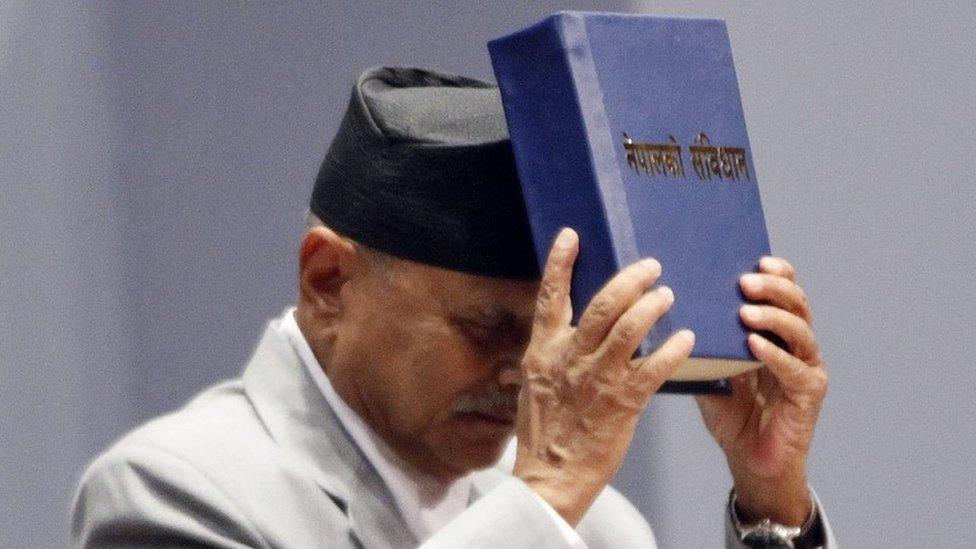
- Published19 September 2015
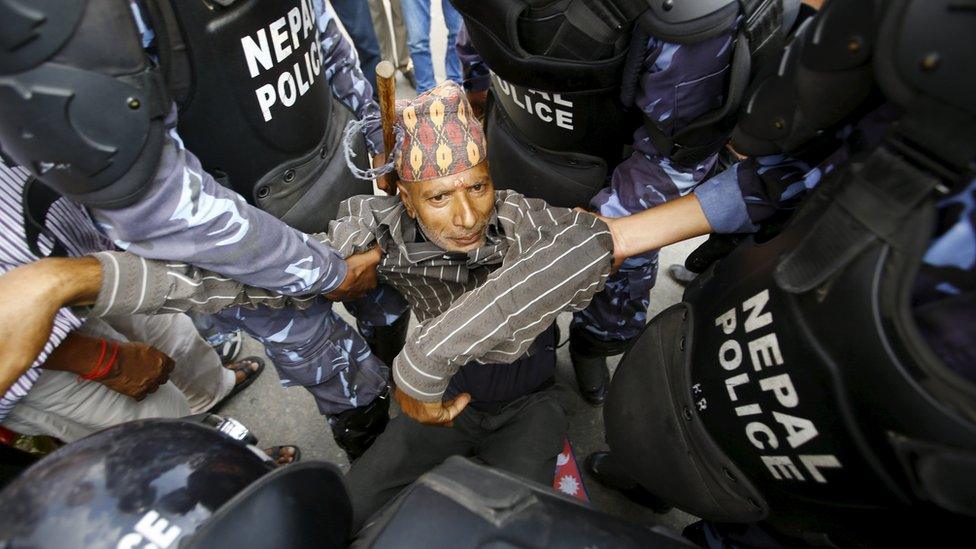
- Published1 March 2015
